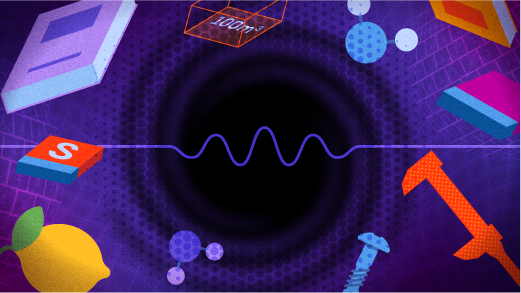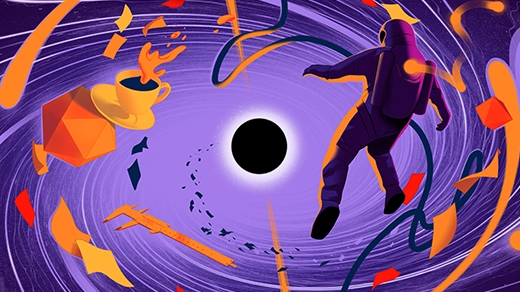What's up in
Black holes
Latest Articles
The Thought Experiments That Fray the Fabric of Space-Time
These three imagined scenarios lead many physicists to doubt that space-time is fundamental.
The Unraveling of Space-Time
This special issue of Quanta Magazine explores the ultimate scientific quest: the search for the fundamental nature of reality.
Mathematicians Prove Hawking Wrong About the Most Extreme Black Holes
For decades, extremal black holes were considered mathematically impossible. A new proof reveals otherwise.
Mathematicians Attempt to Glimpse Past the Big Bang
By studying the geometry of model space-times, researchers offer alternative views of the universe’s first moments.
Can Information Escape a Black Hole?
Black holes are inescapable traps for most of what falls into them — but there can be exceptions. The theoretical physicist Leonard Susskind speaks with co-host Janna Levin about the black hole information paradox and how it has propelled modern physics.
What Is Quantum Teleportation?
Teleporting people through space is still science fiction. But quantum teleportation is dramatically different and entirely real. In this episode, Janna Levin interviews the theoretical physicist John Preskill about teleporting bits and the promise of quantum technology.
To See Black Holes in Stunning Detail, She Uses ‘Echoes’ Like a Bat
The astrophysicist Erin Kara measures time lags in black holes’ X-ray glows, which reveal the complexity of the objects’ closest surroundings.
A Century Later, New Math Smooths Out General Relativity
Mathematicians prove a theorem that illuminates the geometry of universes with tiny amounts of mass.
Math Proof Draws New Boundaries Around Black Hole Formation
For a half century, mathematicians have tried to define the exact circumstances under which a black hole is destined to exist. A new proof shows how a cube can help answer the question.








